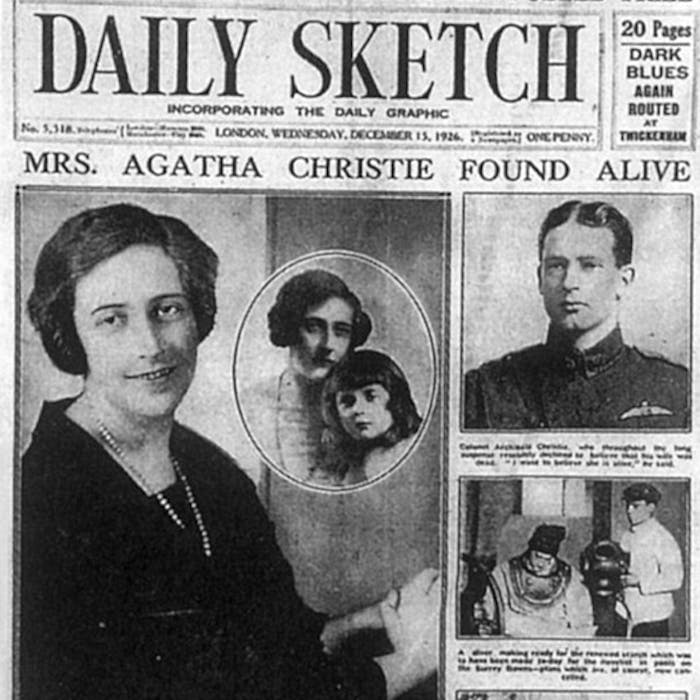
The strange vanishing of Agatha Christie
In December 1926, crime novelist Agatha Christie disappeared from her home in Berkshire. An unprecedented manhunt followed, with more than one thousand policemen looking for her - along with hundreds of civilians.
Aeroplanes were involved, which was the first time planes were used in a police search.
After kissing her daughter Rosalind goodnight on December 3 1926, Agatha Christie drove into the night in her Morris Cowley - apparently for no reason. She was not seen again for 14 days. The subsequent manhunt attracted huge attention, with then Home Secretary William Joynson-Hicks urging the police to make more rapid progress. Even Sir Arthur Conan Doyle (creator of Sherlock Holmes) was invited to help, in the hope that his 'specialist knowledge' would aid the search! A keen occultist, he took Christie's glove to a medium in the hope of discovering Christie's whereabouts, although this did not prove fruitful.
Christie's car was soon found, abandoned at Newlands Corner near Guildford. However, there was no sign of the writer, or any indication that any kind of accident had occurred. The investigation entered its second and third days, and attracted a huge amount of media attention. Theories ran wild: with some guessing that it was simply a publicity stunt to promote her next book, and others claiming her adulterous husband Archie Christie had murdered her! By the second week of the search, the story had made the front cover of the New York Times.
But eleven days after she disappeared, the author was found in a hotel in Harrogate. However, Christie provided no answers as to what had happened. The police pieced together an explanation that she had left her home to travel to London, crashed her car and then boarded a train to Harrogate. According to them, she then checked into the Swan Hydro – now the Old Swan Hotel - under the name of her husband's mistress.
Christie never spoke about what happened in those missing days, although biographer Andrew Norman surmises that she was in a psychogenic trance - a rare condition brought on by trauma or depression. She made a full recovery, and divorced her husband in 1928.
Further reading
Links to external websites are not maintained by Bite Sized Britain. They are provided to give users access to additional information. Bite Sized Britain is not responsible for the content of these external websites.
